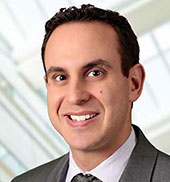Three initiatives on Missouri’s November 6, 2018, ballot seek to make medical marijuana or medical cannabis legal under Missouri state law. This series of posts describes the similarities and differences among the initiatives. In this first post, we cover the basics.
Amendment 2 – New Approach Missouri
The New Approach measure seeks to amend the Missouri Constitution to allow state-licensed physicians to recommend medical cannabis to patients who have Qualifying Medical Conditions (“qualifying conditions”).
Qualifying conditions would include:
- Cancer
- Epilepsy
- Glaucoma
- Intractable migraines
- Chronic medical conditions that cause pain or muscle spasms (such as Multiple Sclerosis, Parkinson’s Disease, and Tourette’s Syndrome)
- Debilitating psychiatric disorders (such as PTSD)
- HIV or AIDS
- Chronic medical conditions normally treated with dependence-producing prescription medication (if a physician determines that cannabis could be effective in treating that condition and would be a safer alternative to the prescription medication)
- Terminal illness
In addition, other chronic or debilitating medical conditions (such as Hepatitis C, Amyotrophic Lateral Sclerosis, Inflammatory Bowel Disease, Crohn’s Disease, Huntington’s Disease, Autism, Neuropathies, Sickle Cell Anemia, agitation of Alzheimer’s Disease, Cachexia, and Wasting Syndrome) would qualify, based upon the professional judgment of a physician.
The Missouri Department of Health and Senior Services (DHSS) would promulgate rules and issue standards for implementation of the Amendment. Accordingly, the Department would have authority to grant or refuse state licenses and certifications to cannabis businesses for the cultivation, manufacture, dispensing, sale, testing, tracking, and transportation of medical cannabis.
Qualifying patients would be required to obtain and annually renew a Department-issued patient identification card. The Department could limit the amount of medical cannabis purchased by or on behalf of a qualifying patient in a 30 day period, provided that the limit is not less than four ounces of dried, processed, cannabis or its equivalent every 30 days. Qualifying patients with a valid ID card could also apply for permission to grow up to six flowering cannabis plants for their own exclusive use. Qualifying patients’ primary caregivers also would be able to obtain an ID card from the Department.
Under Amendment 2, the Department would make ID card applications available to qualified patients by June 4 and begin accepting applications as late as July 5. DHSS would be required to decide within 30 days to approve an application, make no decision, or deny the application. Patients would have the right to an administrative hearing following a denial. While an ID card application is pending, patients would be permitted to possess medical cannabis if they present a physician-signed certification that is less than one year old.
Amendment 2 would introduce a 4% retail sales tax on the medical cannabis. The tax revenue would be deposited into a newly-created Missouri Veterans’ Health and Care Fund to provide care and services to Missouri veterans.
Amendment 3 – Bradshaw Amendment
This initiative would create a state-run research entity, the Biomedical Research and Drug Development Institute, a governmental instrumentality with its own campus for research regarding presently incurable disease. The Board of Biomedical Research and Drug Development (the Research Board) would issue rules and procedures for implementation of the initiative, including rules and procedures relating to the licensure of marijuana facilities and issuance of qualifying patient ID cards.
To access medical cannabis, patients would require a signed physician’s certification stating that the patient suffers from a qualifying medical condition, is likely to benefit from cannabis use, and that the potential benefits of cannabis use outweigh the health risks. The physician certification would be valid for up to 24 months.
Qualifying medical conditions would include:
- Cancer
- Epilepsy
- Multiple sclerosis
- HIV and AIDS
- Glaucoma
- Intractable migraines
- Chronic medical conditions causing persistent pain or muscle spasms (including paralysis, Parkinson’s Disease, Bell’s Palsy, and Tourette’s Syndrome)
- Debilitating psychiatric disorders
- Terminal illness
- End stage illness and any other diseases approved by the Research Board (Board of the Biomedical Research and Drug Development Institute, which would be created by the initiative)
A qualifying patient would be required to apply for a patient identification card from the Research Board as proof to law enforcement and dispensary staff of their lawful cannabis possession. Unlike Amendment 2, however, under this initiative, patients would not be permitted to grow their own plants.
While the Research Board could set limits on the amount of marijuana that may be purchased per month, the limit could not be less than three ounces every thirty days of dried, unprocessed marijuana or its extract equivalent.
Under Amendment 3, the Research Board would make qualifying patient identification card applications available as early as March 31, 2019, and as late as June 30. The Research Board would begin accepting applications no later than September 1, 2019. Upon application, the Research Board must grant or deny the card within 30 days. Adverse action by the Research Board would be appealable to the Administrative Hearing Commission, subject to judicial review, or subject to written procedures established by the Biomedical Research and Drug Development Institute that guarantee due process.
The Research Board would consist of nine members and would oversee both the Biomedical Research and Drug Development Institute and the medical cannabis program. A self-appointed Article XIV Coordinator would make decisions during the Biomedical Research and Drug Development Institute start-up phase and appoint the initial nine board members.
The initiative would impose a 15% sales tax on medical cannabis and a cultivation tax on each wholesale sale at $9.25 per dry-weigh ounce of marijuana flowers and $2.75 per dry-weight ounce of marijuana leaves.
Proposition C – Missouri Patient Care Act
Proposition C seeks to change Missouri statutes to permit state-licensed physicians to certify that a patient has a qualifying medical condition and to allow for the limited legal production, distribution, sale, possession, and purchase of cannabis for medical use.
Like Amendment 2, the Missouri Department of Health and Senior Services (DHSS) would oversee patient registration and cannabis-infused products. However, the Missouri Division of Alcohol and Tobacco Control (DATC) would be the designated licensing authority.
Proposition C would require patients to obtain a signed physician’s certification stating that they have a qualifying medical condition and that the physician is treating that condition.
The qualifying conditions under Proposition C are the same as those under Amendment 2.
Patients who have received a signed physician certification would be allowed to purchase 2.5 ounces of cannabis every 14 days and would be required to apply for a DHSS-issued patient identification card as legal proof of their lawful cannabis possession to law enforcement and dispensary staff. Like Amendment 3, and unlike Amendment 2, Proposition C would not permit patients to grow their own plants.
Under Proposition C, the DHSS would be required to make identification card applications available no later than May 5, 2019, and to start accepting applications no later than June 4. The DHSS would have no deadline to make its decision to approve the application, make no decision, or deny the application. Proposition C does not address patient rights in the event of denial or no decision, or during the period in which an identification card application is pending. Patients would be required to produce an identification card at all times while in possession of medical cannabis, which must come solely from a Missouri source.
It would introduce a 2% retail sales tax.
Important similarities and differences
- Each measure would permit only medical cannabis. Recreational use would not be permitted.
- Each measure would give minors access medical cannabis with permission from parents or legal guardians.
- The amount of cannabis that may be purchased and possessed by a patient differs:
- Amendment 2 – New Approach Missouri would allow purchase of at least 4 ounces per 30 day period, with permission to possess a 60 day supply (8 ounces).
- Proposition C – The Missouri Patient Care Act would allow purchase of at least 2.5 ounces per 14 day period, with permission to possess a 60 day supply (10 ounces).
- Amendment 3 – The Bradshaw Amendment would allow purchase of at least 3 ounces per 30 day period.
- Amendment 2 – New Approach Missouri would allow purchase of at least 4 ounces per 30 day period, with permission to possess a 60 day supply (8 ounces).
- Use of the funds generated by the taxes differs:
- Amendment 2 – New Approach Missouri would provide funding to Missouri veterans.
- Amendment 3 – The Bradshaw Amendment would fund a new medical research institute.
- Proposition C – The Missouri Patient Care Act would divide funds between veterans’ services, drug treatment, education, and law enforcement.
- Amendment 2 – New Approach Missouri would provide funding to Missouri veterans.
- Agency implementation differs:
- Amendment 2 – New Approach Missouri would task the existing Missouri DHSS with implementation.
- Amendment 3 – The Bradshaw Amendment would create a new Board of Biomedical Research and Drug Development Institute for implementation of the measure.
- Proposition C – The Missouri Patient Care Act tasks the existing Missouri DHSS and Missouri DATC with implementation.
- Amendment 2 – New Approach Missouri would task the existing Missouri DHSS with implementation.
- Should Amendment 2 or 3 pass, legislative repeal or change regarding their language would require a majority vote in the Missouri House and Senate to pass a resolution putting the question on a ballot. Changes would take effect if the ballot measure were passed by a majority vote. However, both Amendment 2 and Amendment 3 include severability provisions so that if any provision were judged invalid by a court, the other provisions would remain in effect. Should Proposition C pass, repealing or changing the language would require a majority vote in the House and Senate to send a bill to the Governor for signature.
Stay tuned for Part 2 of our coverage of the medical cannabis initiatives, where we will discuss the potential business impact of each ballot measure.
Carl Rowley chairs the firm’s Mass Tort Practice and is a member of its Cannabis Practice.
















